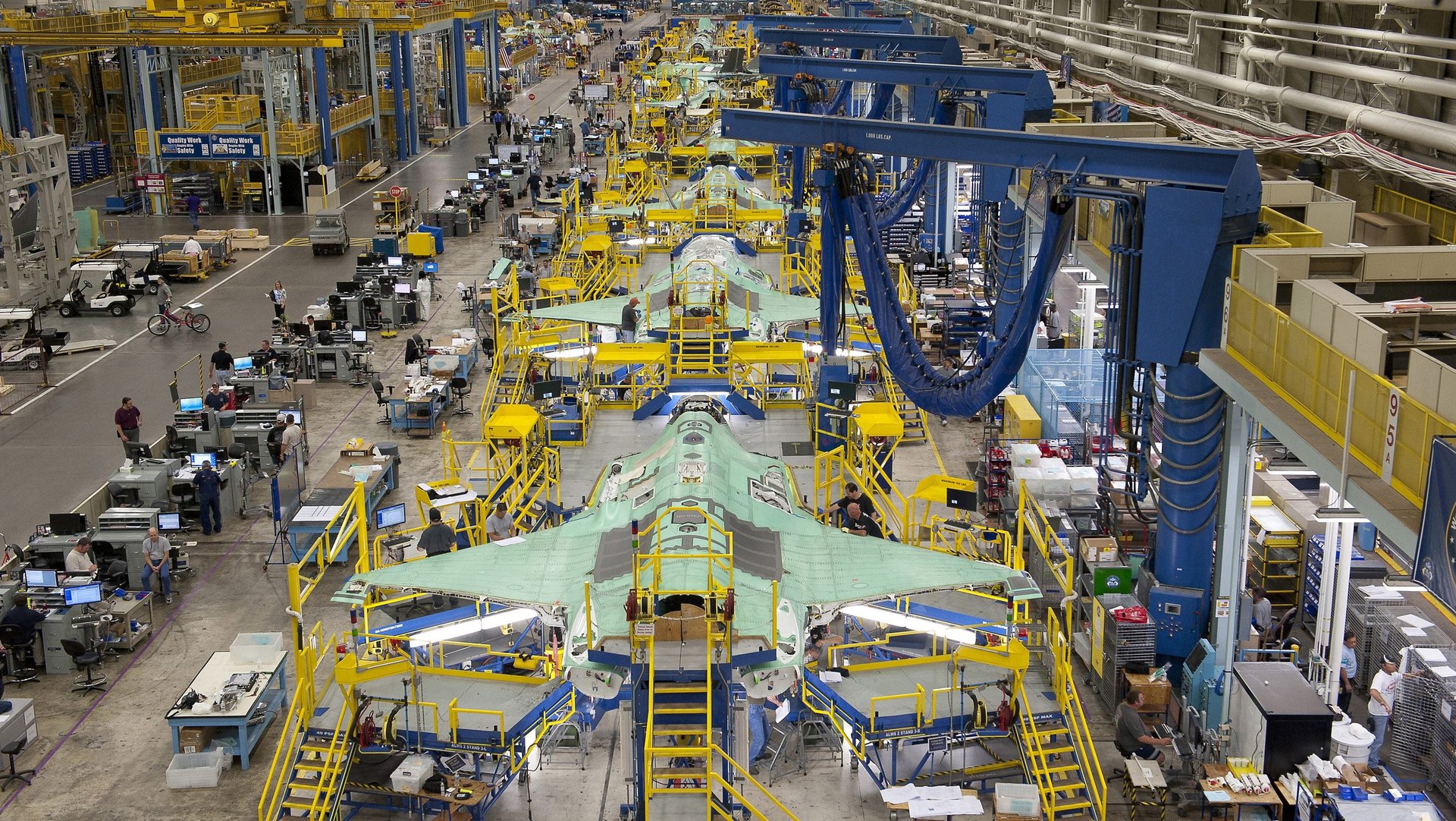Japan’s fear of China and North Korea is helping Texas’s “Cowtown”
Japan plans to buy at least 20 more F-35A stealth fighters over the next six years, according to a report by Reuters yesterday. What’s most notable about the news is not the number of jets, but where they will be made and assembled.


Japan plans to buy at least 20 more F-35A stealth fighters over the next six years, according to a report by Reuters yesterday. What’s most notable about the news is not the number of jets, but where they will be made and assembled.
In December 2011, Tokyo announced it would replace its aging military jets with F-35s, which would become the mainstay of its air defense fleet. It ordered 42 from Lockheed Martin, in a deal then worth about $8 billion. But in a key concession, the company agreed to license (paywall) part of the production to a consortium of Japanese companies.
It was still a sweet deal for Lockheed Martin, which would continue to manufacture many of the most lucrative parts of the jet. But it would have been even sweeter if the plane was put together entirely in the US. Instead, final assembly for 38 of the fighters would be handled in Japan by Mitsubishi Heavy Industries, which last June unveiled the first completed product. Last month, the first F-35A arrived at Misawa Air Base in Japan to begin forming the nation’s new fleet.
But Japan’s F-35 project has been plagued by cost overruns (paywall), partly due to Mitsubishi’s difficulties in getting subcontractors to supply parts of the right quality. In yesterday’s Reuters report, sources said that purchasing the complete aircraft from the US, at about $100 million each, would save Japan $30 million per airframe.
That will mean more revenue for Lockheed Martin, and a need to hire more workers. That’s good news for “Cowtown,” otherwise known as Fort Worth, Texas, where the planes are made in a massive mile-long plant. The nickname Cowtown traces back to the city’s role in cattle transport via rail in the late 1800s. Today Dallas-Fort Worth is the fourth-largest metropolitan area in the US.
Fort Worth has been making fighter jets for decades. The industry has ebbed and flowed, but lately, thanks to demand for the F-35, Lockheed Martin has been on a hiring spree—one that will rev up even more with the new order from Japan. In December the company held a fourth hiring event at a local hotel, the Star-Telegram reported, looking to bring on hundreds of workers for the F-35 assembly line, with some jobs paying up to $75,000 a year.
The F-35 program, started in 2001, has long been under intense criticism because of cost and scheduling overruns. In December 2016, Donald Trump, then the US president-elect, piled on more. He took to Twitter to criticize its costs and pledged to save billions of dollars on military contracts.
He also threatened to replace the F-35 with the F-18 from Boeing.
That drew quick criticism—and even mockery—from the combat-aviation community. The F-18, unlike the F-35, is not a stealth jet. As Popular Science suggested, “it’s like suggesting a cruise ship can do the job of an aircraft carrier.”
Yet Trump was about to become the commander-in-chief. Nerves were rattled in Fort Worth. In January 2017, Lockheed Martin CEO Marillyn Hewson met with Trump to explain some things. She said her company planned to add some 1,800 F-35 jobs in Fort Worth, and that the price of the advanced jet was going down as production increased and the project gained momentum. The Fort Worth plant already employed 14,000 workers at the time, about 8,800 of whom worked on the F-35.
Today, strong demand is kicking in from US allies in the Asia-Pacific. It’s driven largely by fears of an unpredictable North Korea—prone to testing nuclear bombs and launching intercontinental ballistic missiles—and a rising China that’s making increasingly sophisticated military technology—and not backing down from its questionable claims in the South China Sea and elsewhere. In addition to Japan’s new order, South Korea said in December it plans to order 20 more F-35As, building upon a previous request for 40. And Fort Worth workers are also working on F-35As for Australia to be delivered this year, part of an earlier order for 72.
What’s more, both Japan and South Korea are considering buying F-35Bs for use on warships. Japan for instance wants to put the fighter, capable of vertical landings, on its Izumo-class helicopter carriers. China, which has disputes with Japan over East China Sea islands, quickly protested the idea, saying it would erode trust and violate Japan’s pacifist constitution.
F-35 workers in Cowtown might not monitor the news about China, North Korea, and their worried neighbors. But having dodged a bullet with Trump, they are most definitely affected by it.